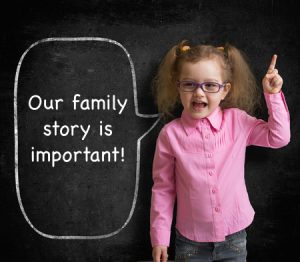 Paul Peryman, MA, Dipl Aud (Melb), MNZAS-CCC, Audiologist
Paul Peryman, MA, Dipl Aud (Melb), MNZAS-CCC, Audiologist
Van Asch Deaf Education Centre
Christchurch, New Zealand
I work as a paediatric audiologist at van Asch Deaf Education Centre in Christchurch, New Zealand. I have worked there for 30 years. During that time I have practised within a family-centred care model, in conjunction with the teams with whom I work in the Centre.
Part of my work includes meeting families with preschool and primary school aged children who are deaf/hard of hearing (DHH). These families are referred to our centre from around central and southern New Zealand and stay in residence for four days. During that time, they meet and work with a team which includes myself, a speech language therapist, a specialist literacy teacher, a specialist early intervention teacher, and a New Zealand Sign Language tutor. The families also meet other parents who bring their DHH children to our early intervention centre.
The objectives of our residential courses are to provide assessments of the children and guidance to the families. Immediate post-course ratings of each specialist area of assessment and support are received from families before their departure. In common with the approach of the Colorado Home Intervention Programme, evidence for modifying and continuing professional practice within the residential course teams has been based on both family and professional feedback (both internal and external), as well as international research within each team member’s professional speciality.
Some reasons why our residential courses work well
- An intense focus is provided on early language, hearing, signing, speech, visual communication, social behaviour, and literacy.
- Consistency exists for each family from across the team members.
- Family and child-centred focus – parents find this refreshing.
- Generous time frames and flexibility in courses, allowing the tailoring of courses to family needs and referrer priorities.
- Opportunities to meet other families and share experiences – especially beneficial for isolated families.
- Unique and relaxed environment – helps families focus on themselves and their DHH child’s needs.
- Presence of other deaf adults and children on the site is perceived as a positive characteristic.
- Family travel, accommodation and meal costs are supported.
Hearing family stories and experiences

Working with these parents and families involves hearing stories. The stories are invited and prove highly informative for the team. Hearing the stories and reflecting back to parents requires the display of empathy and compassion, as parents are often at the same time quite emotional. Some have not previously had the opportunity to tell their story, and it comes as a relief to do so and to be heard. Some parents have also had experiences of rushed audiological appointments, leaving them with little time to share observations and to ask the questions they want of the professionals. Those parents were feeling removed from the audiological management of their child; not understanding what was happening and what to expect. In some cases, parents didn’t believe the diagnosis, which they admitted had affected their willingness to persevere with the battle of keeping hearing aids on an infant who appears to hear.

How to balance limited time?
It seems to me that this state of affairs comes about due to my hospital colleagues being so pressed for time that they have to reduce their service to one of meeting the required evidence-based clinical protocols, against which they are audited. While some try to resist this pressure, it is ever present. They are concerned that too much valuable clinical time might be used up once a conversation is entered, leaving them unable to complete the protocols. Colleagues have also said anecdotally that they feel ill prepared to engage in conversations that might become emotional or difficult. There is a feeling that stopping and allowing time for conversation will affect their appointment schedules and therefore cause them stress (Severn et al, 2012).


TWO QUESTIONS FOR THE PROFESSION:
1. Is altruism in clinical practice being lost?
The dominating effects of the need to conform to evidence based practice has been raised as an issue in nursing (Straughair, 2012): “…as the profession of nursing advanced to develop evidence-based practice, some of the ethos of the compassionate nursing character was seemingly lost in favour of technical skills. This is supported by evidence suggesting that nurses have a decreased affinity with the ethos of altruism. Recent reports have highlighted negative patient experiences which reflect a clear lack of compassionate nursing care. This has led to a variety of documents re-endorsing the concept of compassion as a core and fundamental nursing value.”
We need more research in this area amongst paediatric audiologists.
2. Can EBP, the desire to help, and having the space to show empathy and compassion co-exist in audiology?
Audiology is a helping profession – “A helping profession is one that nurtures the growth of or addresses the problems of a person’s physical, psychological, intellectual, emotional or spiritual well-being, including medicine, nursing, psychotherapy, psychological counseling, social work, education, life coaching and ministry.”
Bearing in mind this definition while sharing my approach to paediatric practice with my colleagues, I believe that it is possible for us to listen to parents and have the conversations that they request and that I know are necessary to support their understanding. I know that this can be done in a compassionate and empathetic manner, while still completing clinical procedures. Being empathetic and compassionate, and talking about what is going on, does not add time to the appointment, nor prevent the professional requirements of an appointment from taking place. Rather, it can just be present in the manner of speaking during the conversations that occur. As Brill and Nahmani have said, the presence of compassion (and presumably showing empathy) is simply a means of taking a stance towards clients, and toward the clinical relationship with them (Brill & Nahmani, 2017).
In some cases, conversation with parents does become sensitive, for which some counselling skills are required. This is especially the case if it is noted that progress in managing a child’s or parent’s needs will not occur without helping parents to move forward, and if one knows that this is the best opportunity to begin these conversations for the benefit of the family.
Diana Harbor recently cited research in her article on this site showing that compassion and listening skills can be taught and measured in audiology students. It is time for audiologists in training to have a practical counselling component within the curriculum; and for them to be introduced to the concepts of mindfulness, compassion and empathy, and how they are woven into professional practice. One could go even further and state that training needs to embed compassion and empathy as core values of audiological practice. Effective role modelling in practice that demonstrates high-quality compassionate audiological care is also essential for newly trained audiologists.
In conclusion…
Families need a balance between audiologists getting the assessment and technical aspects right, and understanding what their child can and can’t hear and what audiologists are trying to achieve. They need this provided within a climate of compassionate and empathetic care. Families are the ones who live every day with their child with hearing loss. No family can be expected to run with our recommendations unless they trust their professionals, they feel listened to, they understand what is going on, and they are given appropriate emotional and practical support.
References
American Speech-Language-Hearing Association. (2005). Position Statement.
Brill, M. & N. Nahmani (2017). “The presence of compassion in therapy.” Clinical Social Work Journal 45(1): 10-21.
Straughair, C. (2012). “Exploring compassion: implications for contemporary nursing. Part 1.” Br J Nurs 21(3): 160-164.
